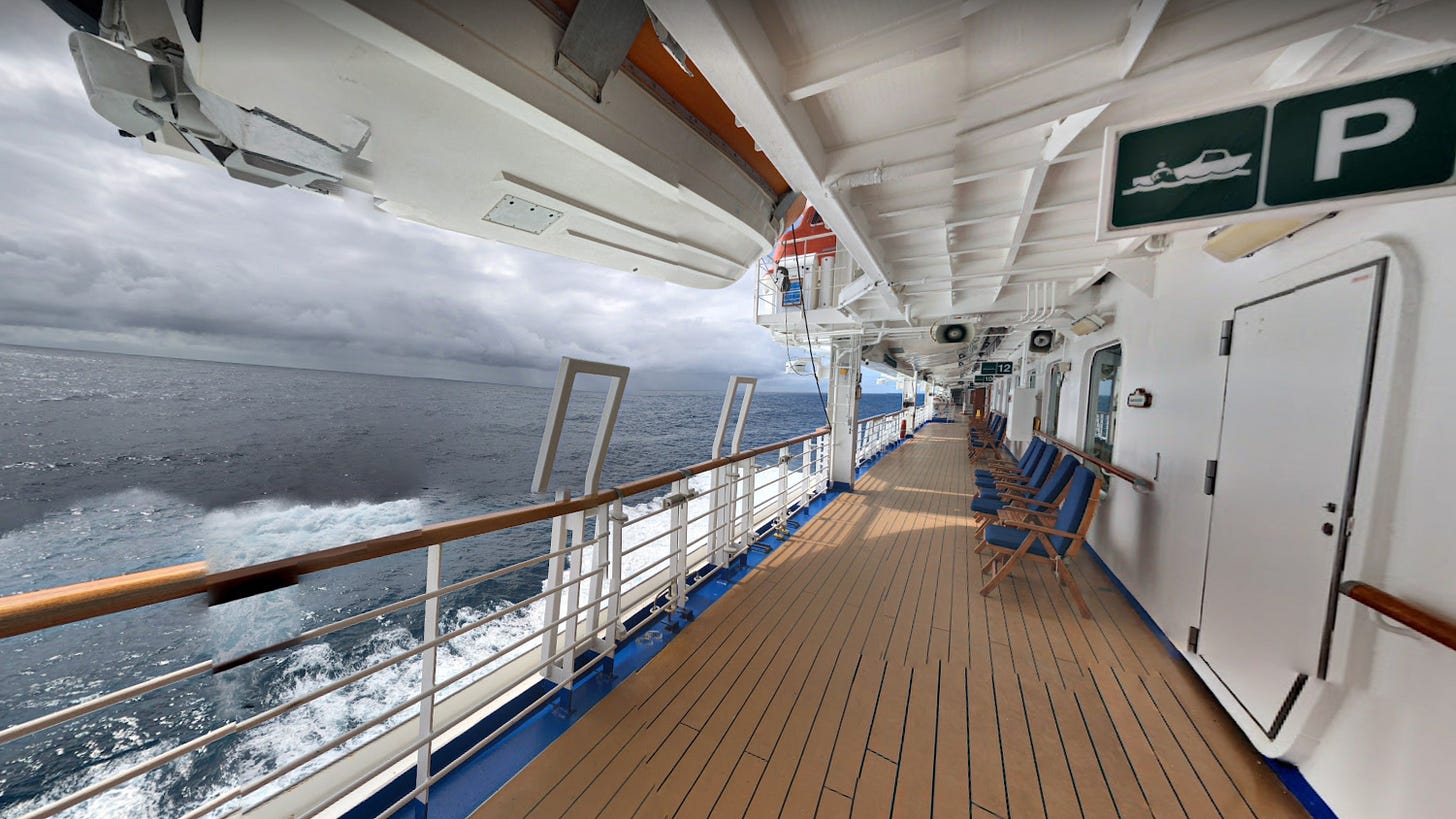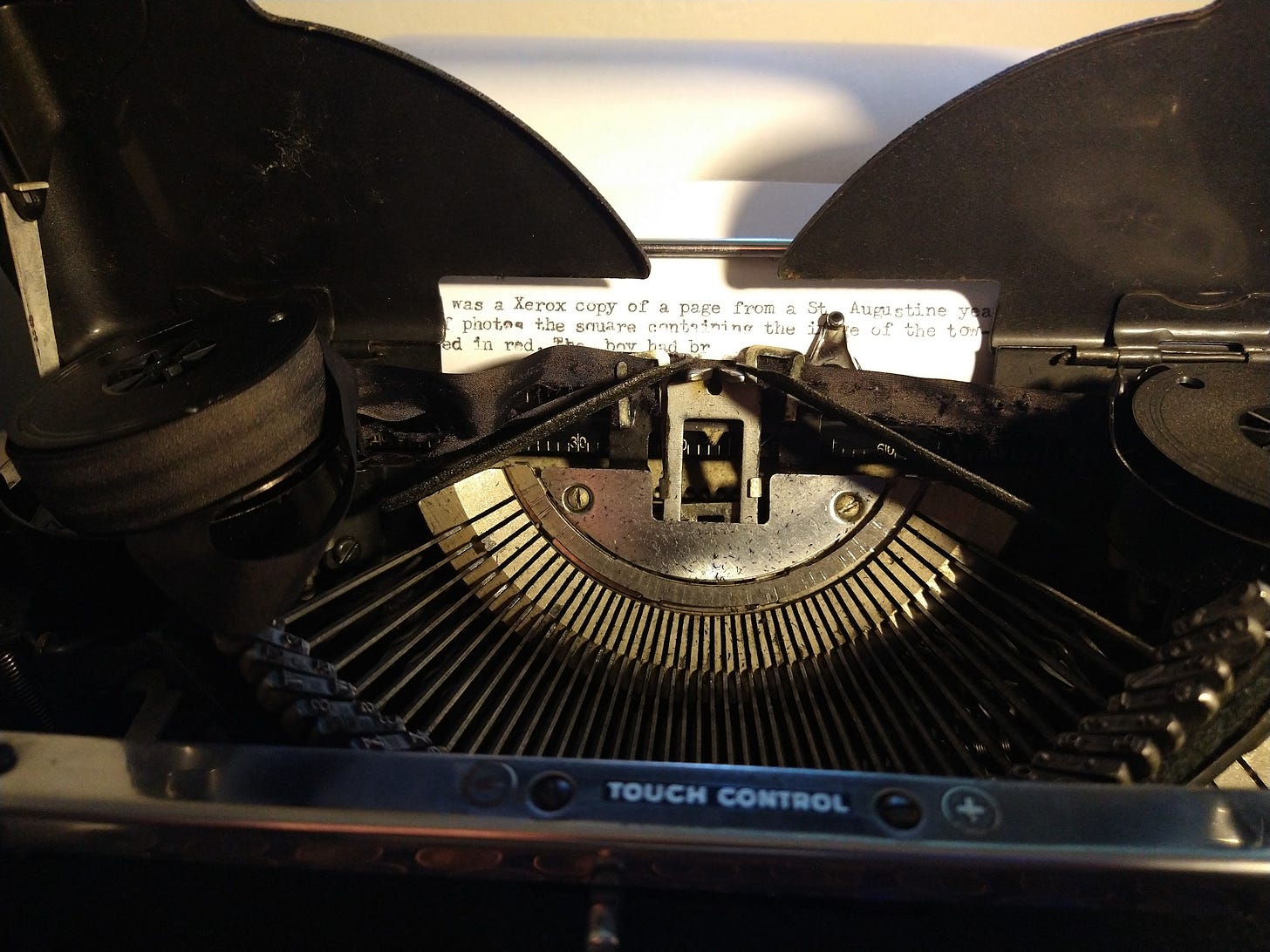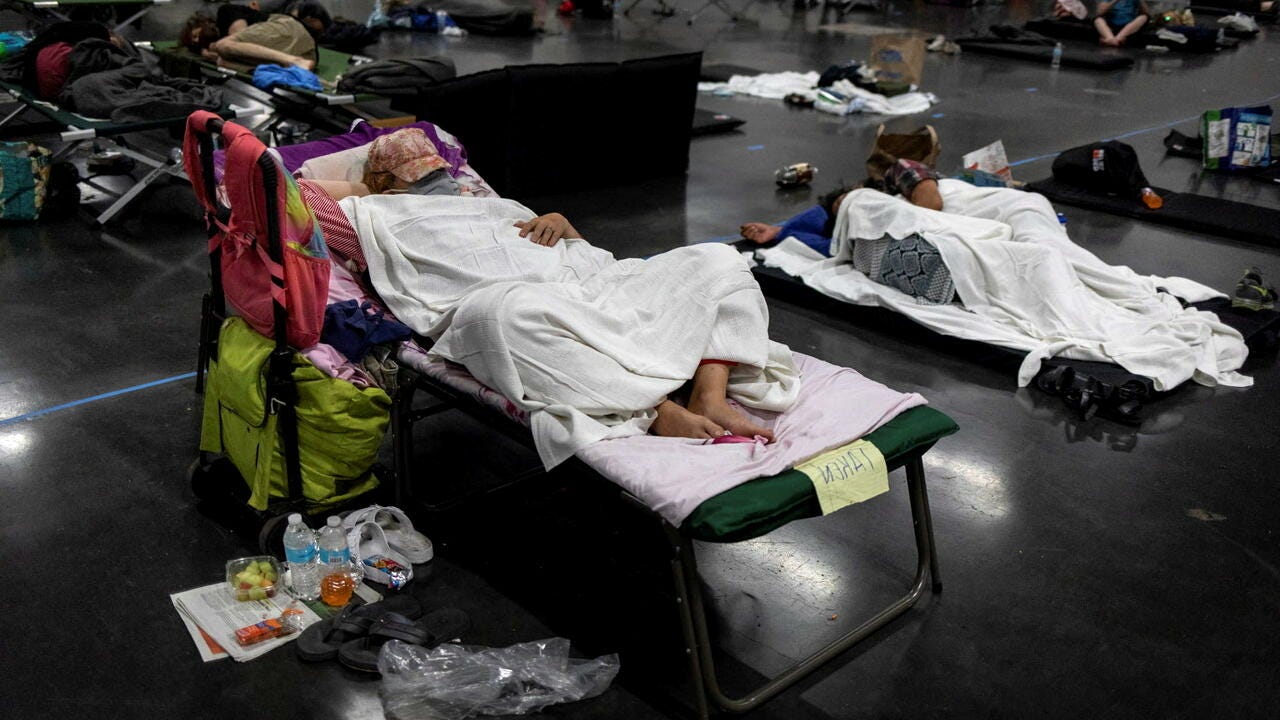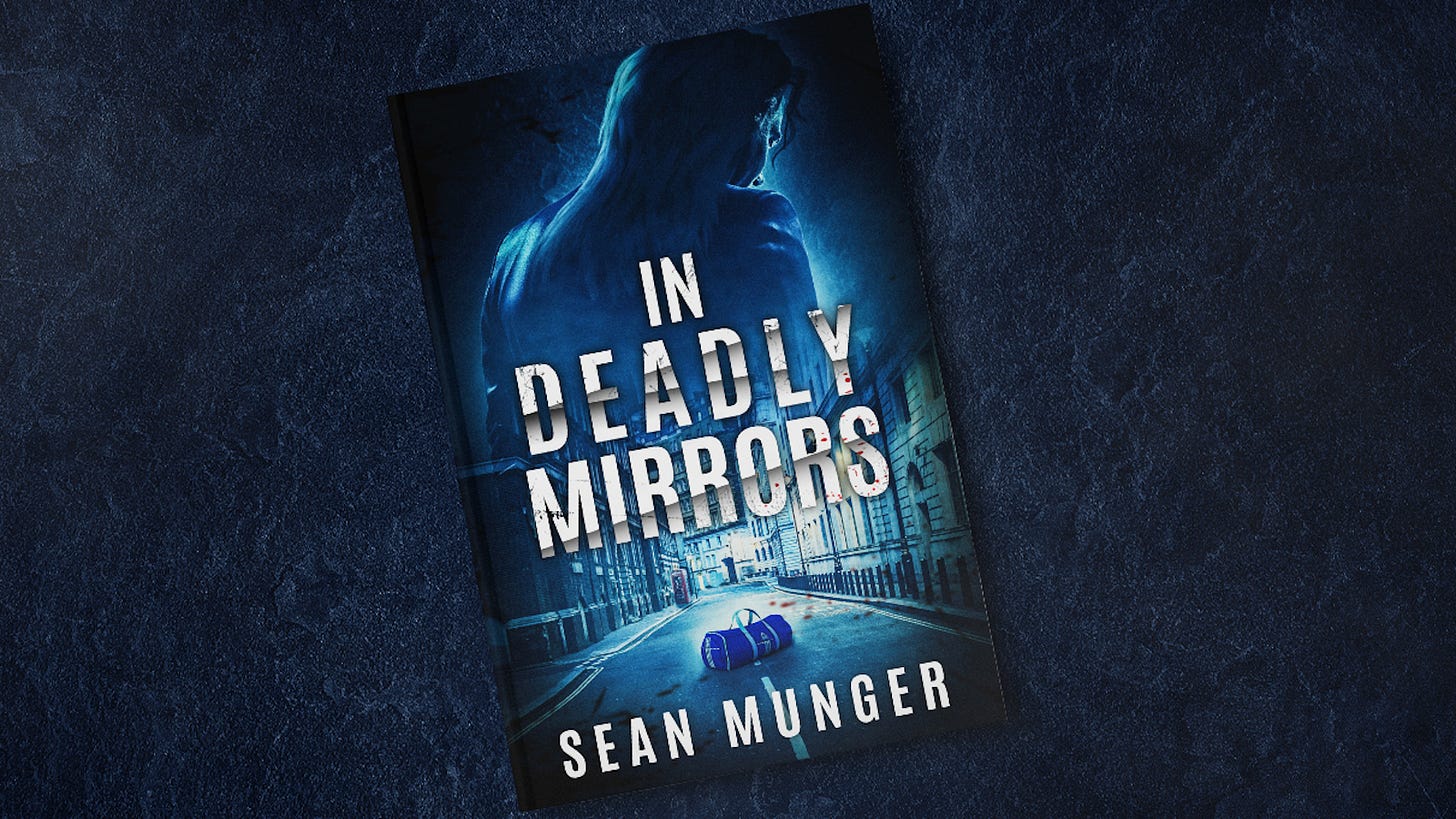Why I wrote "In Deadly Mirrors."
How climate change and political anxiety led me to write an international crime novel.
Tomorrow, October 29, 2021, my novel In Deadly Mirrors will be released on Amazon Kindle. You can find the book, and order it, here (there is also a paperback version). My friends, readers and fans have already been wonderfully supportive, preordering the book before the release date and amplifying its reach on social media. Those of you who know me mainly for my historical work might be surprised to learn I spend a significant of my time writing fiction. I’m also the author of The Valley of Forever, a science fiction/magical realism novel; and the now out-of-print but popular in its day horror/zombie story Zombies of Byzantium, published by the now-defunct Samhain Publishing. I have no illusions about In Deadly Mirrors, a crime novel, being important or having anything earth-shaking to say. It’s just a story for entertainment. But I did write it for some very specific reasons, and as those reasons relate to subjects I often write about on this blog, I thought this was an appropriate venue to talk about it.
First, a little about the book itself. In Deadly Mirrors is the story of Marcus, a depraved and amoral criminal and scam artist, and the increasingly tangled web of deception, crime and betrayal he somewhat unwittingly spins around himself. Taking place in 1997, the action begins aboard a cruise liner plying Alaska’s Inside Passage. Marcus, in his late 20s, is aboard the ship with a young companion, Rafael, age 18, the son of a wealthy pop star from São Paulo, Brazil. Marcus, who is bisexual, is oddly dominating and controlling over Rafael, with whom he is apparently infatuated. When Rafael realizes that at least a part of this relationship involves Marcus embezzling his money and confronts him, Marcus snaps and kills Rafael in a fit of pique by throwing him overboard. Taking Rafael’s money, Marcus flees to London. But back in São Paulo Rafael’s family, which is connected to the Brazilian mafia, hires a hit man to chase Marcus to London and rub him out. The appearance of a gym bag full of cash—owned by an IRA terrorist fundraiser—suddenly tempts both Marcus and the Brazilian hit man, who enter into a crooked deal with each other to steal it. Obviously one, or both, of them is going to double-cross the other. But which one, and who will get away with the money?
The unspoken genesis of In Deadly Mirrors, and one you won’t find addressed directly in the book at all, is global warming—and specifically the anxiety caused by it. After working on climate change related issues as a consultant for several years now, by the late spring of 2021 I began increasingly to feel nervous, anxious and depressed over the wave of disaster increasing around the globe, which I have long known about and predicted would pinch with greater severity. Back in 2019 I wrote my nonfiction book The Warmest Tide: How Climate Change is Changing History. This book was an attempt to assess how global warming is becoming the main engine of historical change and what we might expect from that. The Warmest Tide is surprisingly upbeat. My main thesis is that humanity will eventually survive, adapt to and solve the problem of anthropogenic global warming. But of course it was published in the late summer of 2019. Then came the pandemic, economic collapse, racial violence, the election, insurrection, and everything that’s happened then. By the late spring of this year the hopeful tone of The Warmest Tide seemed a little quaint.

I did leave some things out of The Warmest Tide, deliberately. While I do believe humanity will survive and solve global warming—in the long-term—the shorter-term prognosis is pretty grim. Essentially, all historical signs that I can see point to climate change triggering very large-scale upheavals, such as revolutions and global military conflicts, within the next few years. The 2020 election, the January 6 insurrection and continued slide of the American polity toward fascism leads me to believe we have only a few years left before either the break-up of the United States or the cancelation of our Constitutional system. I wrote about that here and here. The “great slowdown,” or the permanent end of growth-based economic system—which some people view as tantamount to civilizational collapse—can’t be more than 15 years away and is related to the collapse of the United States. A leader or regime will step up to deal with climate change, but it will be an extraordinarily repressive and violent regime; I wrote about that here. These are the conclusions that have come increasingly clear to me, especially over the past six months.
The idea to write a crime novel began gestating in my mind in this same period. Crime and suspense fiction, which I’d never written before, is both fun and absorbing. After spending several hours a day with my head in large and anxiety-causing subjects like rising fascism and climate-fueled war, by the late spring I became increasingly in need of an activity that would engage my mind on a high level but also be completely divorced from these anxiety-causing subjects. I can’t “turn off” my work related to climate change or the broader strokes of history. It’s what I do. But, at a set time each afternoon, I can call a halt to that work and instead put my energies into solving mental puzzles and constructing another reality, one that would engage me and, hopefully, readers; though I admit I did not then, and do not now, expect In Deadly Mirrors to find any sort of mass audience. Of course that would be nice, but I’m competing in a field dominated by mass market books from major publishers. I’ll never be anything more than a niche.
In plotting the book, I found the process of trying to think like a career criminal to be surprisingly engaging. In the real world, most crimes are not very well thought-out, and they’re committed by people who are usually situational, not professional, criminals. In a comparatively few cases, there are people for whom crime is a more or less full-time job, and the more often it’s committed, the more rational it becomes. In building the mind and attitudes of In Deadly Mirrors’s main character, Marcus Holcomb, I had to do two things I don’t do in my own life: think totally transactionally, on the basis of “what can I gain from X and what do I have to give up to get it,” and also to divorce that process from any sort of moral or ethics-based analysis. In my real life, in contemplating a decision I usually think first about whether it’s the right thing to do, rather than what I can gain from it. When figuring out how a character like Marcus would make his way in the world, I had to try on an entirely different kind of thinking and decision-making. It was terrifying, but at least I could switch it off when it was time to stop writing and go to bed.

In Chapter 6 of In Deadly Mirrors, I go briefly into Marcus’s backstory and childhood. When he was 14, after goading his 11-year-old stepbrother into taking a near-fatal dose of LSD just to see what would happen, a psychologist examined him and declared, “This boy is a textbook sociopath.” He behaves this way throughout the book, which takes place when he’s in his late 20s—obviously he did not get any help for his condition. Despite being infatuated with Rafael, Marcus kills him coldly and casually with only a few minutes’ premeditation. Later in the story, when he’s living in London, he insinuates himself deftly into a network of organized criminals working for the Irish-born gangster O’Cuinneagain, who’s connected to the IRA. O’Cuinneagain himself is sociopathic, having built his career on running guns and raising money for Irish nationalists—this is when the Troubles were still going on—without much thought for the political or social consequences. Aside from Marcus, most of the characters in In Deadly Mirrors start out having deep convictions, but abandon them when a material temptation, usually money, falls within their reach. The gym bag full of cash is a convenient MacGuffin in the latter part of the story, but this inanimate object drives several of the characters to lay bare their essential natures. I wanted to be sure that the blaze of gunfire at the end of the book was similarly divorced from working any sort of moral comeuppance on the characters it involves. In In Deadly Mirrors, greed, like sea level rise, is a force of nature unleashed by human frailties.
In Deadly Mirrors reflects, to some degree, the sociopathic nature of the world around us today. Former President Donald Trump is severely mentally ill, but the weakness that his serious personality disorders eventually exploited was his inability to relate to human beings in anything other than a totally transactional way. A famous incident occurred at a military cemetery where Trump, looking down at the graves of fallen American soldiers, said something to the effect of, “I don’t get it. Why did they do it? What was in it for them?” He could not understand anyone sacrificing themselves for something unrelated to personal material gain. The character of Marcus Holcomb thinks exactly that way. Sacrifices are something other people make for him, not the other way around. O’Cuinneagain too, corrupted by money, sells out his own 18-year-old daughter to marry Marcus as part of a scheme to launder his IRA terrorist money through a yet-to-be-born grandchild with American citizenship. (My legal background made this plot point an interesting one to come up with).
I began writing In Deadly Mirrors in early June 2021, on my 1935 Royal Quiet Deluxe typewriter. Climate change seemed to want to fight back. At the end of June, here in the Pacific Northwest we suffered through the worst heat wave in our history, which killed over 1,000 people in the region. My husband and I had to flee to an air-conditioned hotel which was swamped with climate refugees seeking shelter from the deadly heat. We were lucky to have the means to do this; many of the dead didn’t have that sort of option. I brought my typewriter to the hotel but the heat wave left me too depressed and anxious to work on the book. I regained my momentum when, a couple of weeks later, we went to the much-cooler Oregon Coast. I completed the major portion of the book on August 8.

In Deadly Mirrors is, therefore, my climate change anxiety novel. I’m in therapy now, and it’s telling that my therapist has encouraged me to do more of this kind of thing; I’m now working on a second international crime novel which I intend to publish regardless of the success of In Deadly Mirrors. We all must find our own ways of dealing with the extraordinary psychological pressures that face us as the slow-moving disasters of the 21st century consume us. I’m not cured by any means. I still have climate anxiety and it will probably only get worse. But for a couple of hours each day I was able to slip into another world and another mindset, and I think it did help me. Maybe this kind of cope won’t last for much longer, but I’m still glad I did it.
☕ If you appreciate what I do, buy me a virtual coffee from time-to-time to support my work. I know it seems small, but it truly helps.
🎓 Like learning? Find out what courses I’m currently offering at my website.
📽 More the visual type? Here is my YouTube channel with tons of free history videos.
💌 Feedback to share or want to say hello? Hit reply on this email or leave me a comment on Substack.


